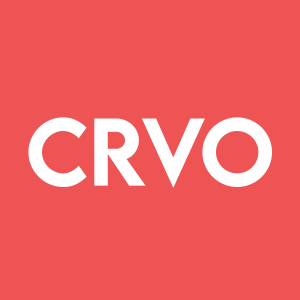CervoMed Highlights Neflamapimod's Potential Benefits in Session on Dementia with Lewy Bodies at the 150th Annual American Neurology Association Conference
Rhea-AI Summary
CervoMed (NASDAQ: CRVO) highlighted its drug neflamapimod's potential benefits for treating Dementia with Lewy Bodies (DLB) at the 150th Annual American Neurological Association conference. The presentation showcased promising Phase 2b trial results, which demonstrated a significant 74% risk reduction in disease progression compared to placebo in patients with low likelihood of concurrent Alzheimer's Disease pathology.
The company is preparing to initiate a Phase 3 trial for DLB patients and expects to finalize the trial design with the FDA in Q4 2025. The presentation was delivered by Dr. James Galvin, Professor of Neurology and Co-Principal Investigator of the RewinD-LB study.
Positive
- Phase 2b trial showed 74% risk reduction in disease progression compared to placebo
- Company advancing to Phase 3 trial with FDA alignment expected in Q4 2025
- Drug shows potential as disease-modifying treatment for an unmet medical need
Negative
- None.
Insights
CervoMed's neflamapimod shows promising 74% risk reduction in DLB trial; Phase 3 preparations underway with FDA alignment expected Q4 2025.
The presentation at the American Neurological Association conference represents an important clinical development milestone for CervoMed's lead candidate neflamapimod. The 74% risk reduction in clinical worsening (measured by CDR-SB) specifically in patients with low likelihood of concomitant Alzheimer's pathology is particularly noteworthy. This targeted efficacy suggests neflamapimod may address the specific pathophysiology of pure Lewy body dementia rather than mixed dementia cases.
The company's advancement toward Phase 3 trials with FDA alignment expected in Q4 2025 indicates confidence in the drug's mechanism of action and clinical profile. Dementia with Lewy Bodies represents a significant unmet medical need as the second most common neurodegenerative dementia after Alzheimer's, affecting approximately
The involvement of Dr. James Galvin, a recognized authority in Lewy Body dementia research and LBDA board member, adds credibility to the program. His presentation of neflamapimod data at this prestigious neurological conference suggests the scientific community considers these results noteworthy.
For a clinical-stage company like CervoMed, this progress represents a critical value inflection point. The positive Phase 2b data establishes proof-of-concept, while the planned Phase 3 trial could potentially lead to the first disease-modifying treatment specifically for DLB, positioning CervoMed strategically in this therapeutic area with substantial commercial potential.
BOSTON, Sept. 17, 2025 (GLOBE NEWSWIRE) -- CervoMed Inc. (NASDAQ: CRVO), a clinical stage company focused on developing treatments for age-related neurologic disorders (CervoMed or the Company), today announced that the promising development program and potential benefits of neflamapimod for the treatment of Dementia with Lewy Bodies (DLB) were highlighted in a presentation on advances in DLB drug development by Dr. James Galvin at the 150th Annual American Neurological Association (ANA) conference held September 13-16, 2025 in Baltimore, Maryland.
“We are excited to continue showcasing neflamapimod’s promising disease-modifying benefit at ANA. Following the positive data showing neflamapimod reduced the risk of clinically significant worsening on the Clinical Dementia Rating Sum of Boxes (CDR-SB) in our Phase 2b trial, including a
Details of the ANA presentation are as follows:
Session: Behavioral Neurology and Dementia: Therapeutic Advances in Neurodegenerative Diseases
Presenter: James E. Galvin, MD, MPH, Professor of Neurology at the Miller School of Medicine in Miami, Co-Principal Investigator of the RewinD-LB study and member of the Board at the Lewy Body Dementia Association (LBDA)
Date: September 16, 2025
Time: 11:00 AM to 12:30 PM
The slides from the presentation that included neflamapimod results will be accessible in the Investor section of CervoMed’s website, https://www.cervomed.com/, following the presentation.
About the RewinD-LB Phase 2b Trial in Dementia with Lewy Bodies
The initial phase of RewinD-LB was a randomized, 16-week, double-blind, placebo-controlled clinical trial evaluating oral neflamapimod (40mg TID) in 159 patients with DLB, followed by a 32-week neflamapimod-only treatment Extension phase. Patients with AD co-pathology, as assessed by plasma ptau181 levels, were excluded from the trial. Compared to patients with “pure” DLB – who may comprise up to
About CervoMed
CervoMed is a clinical-stage company focused on developing treatments for age-related neurologic disorders. The Company is currently developing neflamapimod, an investigational, orally administered small molecule brain penetrant that inhibits p38 mitogen-activated protein kinase alpha. Neflamapimod has the potential to treat synaptic dysfunction, the reversible aspect of the underlying neurodegenerative processes that cause disease in DLB and certain other major neurological disorders. The Company’s recently completed Phase 2b trial evaluated neflamapimod in patients with DLB.
Forward-Looking Statements
This press release includes express and implied forward-looking statements within the meaning of the Private Securities Litigation Reform Act of 1995, as amended, regarding the intentions, plans, beliefs, expectations or forecasts for the future of the Company, including, but not limited to: the therapeutic potential of neflamapimod, including the degree of sustainability of any therapeutic effects; the anticipated timing and achievement of clinical and development milestones, including the Company’s announcement of additional data, if any, from the RewinD-LB Phase 2b clinical trial and any meeting or correspondence between the Company and the FDA; any other expected or implied benefits or results, including that any initial clinical results observed with respect to neflamapimod in the RewinD-LB trial will be replicated in later trials; and the timing of the initiation of any potential future trials or interactions with regulatory authorities, including the Company’s need to acquire sufficient funding for any Phase 3 trial of neflamapimod in DLB. Terms such as “believes,” “estimates,” “anticipates,” “expects,” “plans,” “aims,” “seeks,” “intends,” “may,” “might,” “could,” “might,” “will,” “should,” “approximately,” “potential,” “target,” “project,” “contemplate,” “predict,” “forecast,” “continue,” or other words that convey uncertainty of future events or outcomes (including the negative of these terms) may identify these forward-looking statements. Although there is believed to be reasonable basis for each forward-looking statement contained herein, forward-looking statements by their nature involve risks and uncertainties, known and unknown, many of which are beyond the Company’s control and, as a result, actual results could differ materially from those expressed or implied in any forward-looking statement. Particular risks and uncertainties include, among other things, those related to: the Company’s available cash resources and the availability of additional funds on acceptable terms; the results of the Company’s clinical trials, including RewinD-LB; the likelihood and timing of any regulatory approval of neflamapimod or the nature of any feedback the Company may receive from the FDA; the ability to implement business plans, forecasts, and other expectations in the future; general economic, political, business, industry, and market conditions, inflationary pressures, and geopolitical conflicts; and the other factors discussed under the heading “Risk Factors” in the Company’s Annual Report on Form 10-K for the year ended December 31, 2024 filed with the U.S. Securities and Exchange Commission (SEC) on March 17, 2025, and other filings that the Company may file from time to time with the SEC. Any forward-looking statements in this press release speak only as of the date hereof (or such earlier date as may be identified). The Company does not undertake any obligation to update such forward-looking statements to reflect events or circumstances after the date of this press release, except to the extent required by law.
Investor Contact:
PJ Kelleher
LifeSci Advisors
Investors@cervomed.com
617-430-7579
Media
Argot Partners
liza@argotpartners.com
212-600-1902








